Colin Morris
Legendary Wellington record man Colin Morris was born in Manchester and emigrated to New Zealand in 1963 at the age of 17. His widowed mother had recently died and he had an older sister already living here. He hated it. Back home, The Beatles were changing the world from black and white to colour and Morris felt he was missing out.
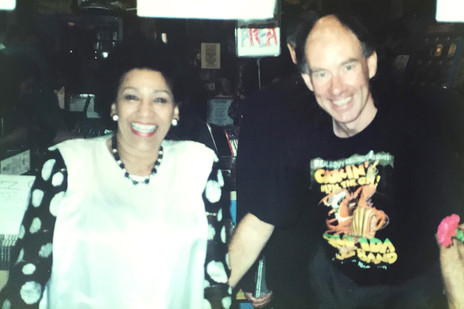
Cooking with the Queen: Colin Morris with Zydeco artist Queen Ida, Wellington, 1990; his t-shirt is designed by Dick Frizzell.
Photo credit:
Colin Morris collection
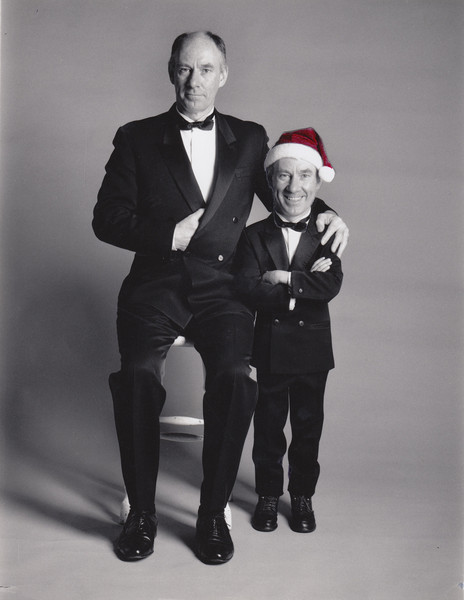
Colin Morris with Santa selfie.
Photo credit:
Colin Morris collection
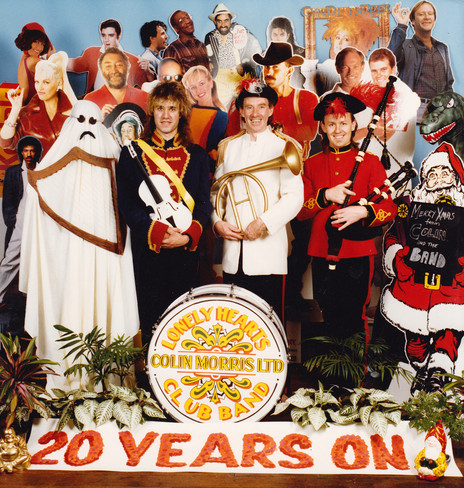
Colin Morris's Lonely Hearts Club Band, Christmas 1987.
Photo credit:
Colin Morris collection
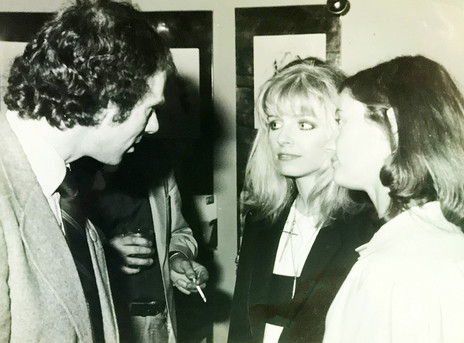
Colin Morris meets Ellen Foley, who sang on Meatloaf's Paradise by the Dashboard Light, in New Zealand to promote her Nightout album, 1980.
Photo credit:
Colin Morris collection
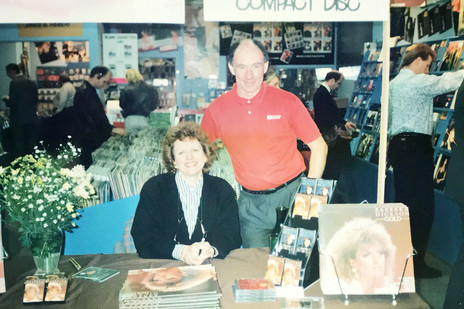
Colin Morris with Scottish singer Barbara Dickson c. 1986 at an in-store for her album Gold, which contained her No.1 duet with Elaine Paige, 'I Know Him So Well', from the Chess musical.
Photo credit:
Colin Morris collection
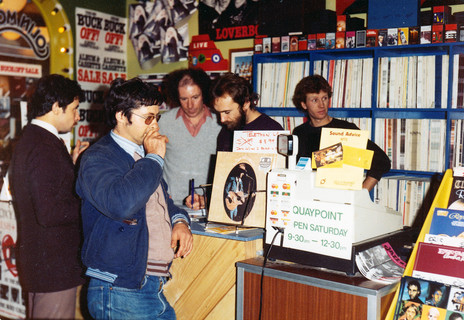
Winter, 1981: Colin Morris centre, Kevin Kane at right, in the new store in Wellington's Quay Point Arcade. Saturday morning trading has arrived, and Don Williams's Telethon LP is on special.
Photo credit:
Colin Morris collection
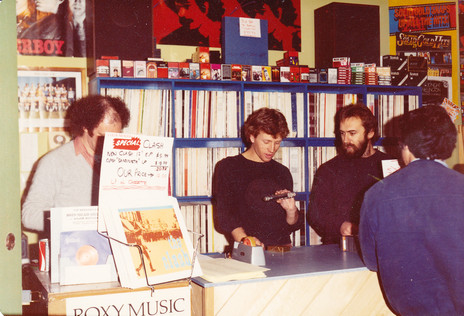
Buy 'Sandinista' for $14.99 and get a Clash 12" for free. Colin Morris behind the till, Kevin Kane centre; early 1981.
Photo credit:
Colin Morris collection
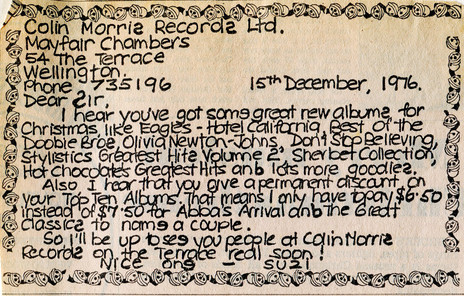
The Eagles, Doobie Brothers, or Stylistics? "Suzi" writes to Colin Morris Records on The Terrace, Wellington, Christmas, 1976.
Photo credit:
Colin Morris collection
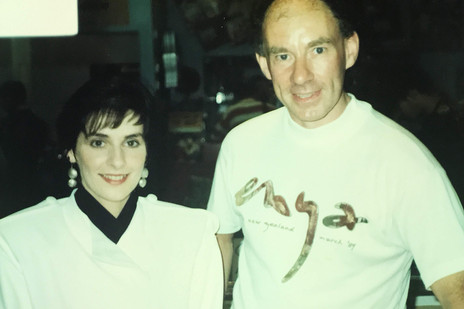
Irish singer Enya with Colin Morris, 1989.
Photo credit:
Colin Morris collection
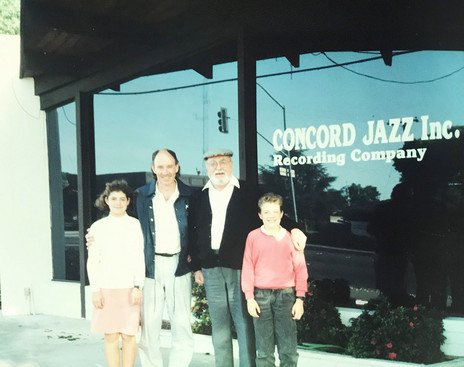
Colin Morris in California with Carl Jefferson, the founder of the mainstream jazz label Concord.
Photo credit:
Colin Morris collection
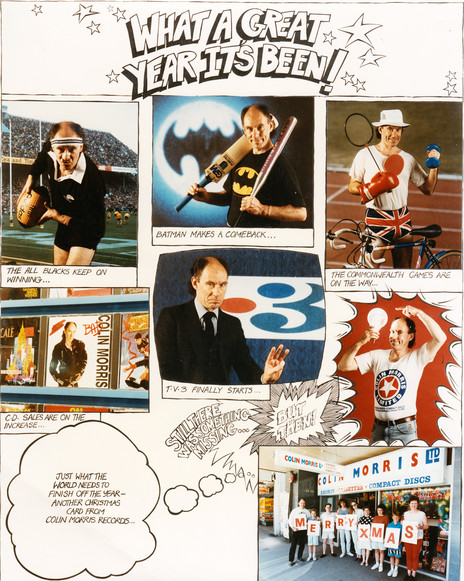
Colin Morris looks back at 1989: a Batman revival, CDs and All Blacks on the upswing, and the arrival of a third TV channel.
Photo credit:
Colin Morris collection
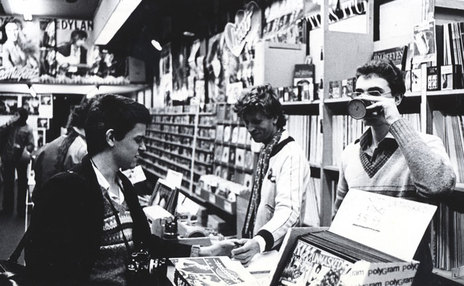
Peter Avery of In Touch magazine, left, delivers a new issue to Kevin Kane at Colin Morris Records, 1981.
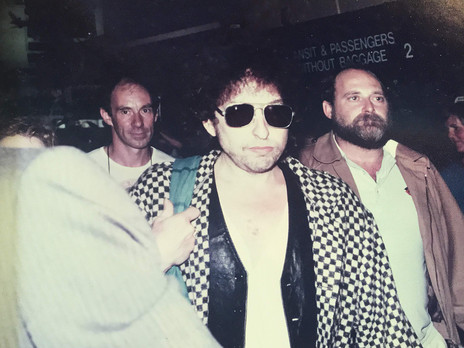
Colin Morris in the wake of Bob Dylan, 1986.
Photo credit:
Colin Morris collection
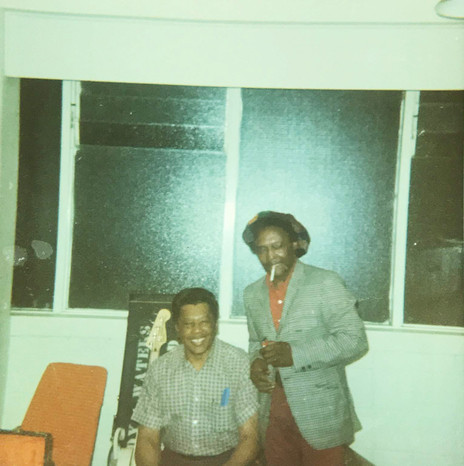
When Muddy Waters visited Wellington with his band in 1973, Colin Morris took photos backstage. From left: Calvin Jones, bass player, and Pee Wee Madison, guitarist.
Photo credit:
Colin Morris collection
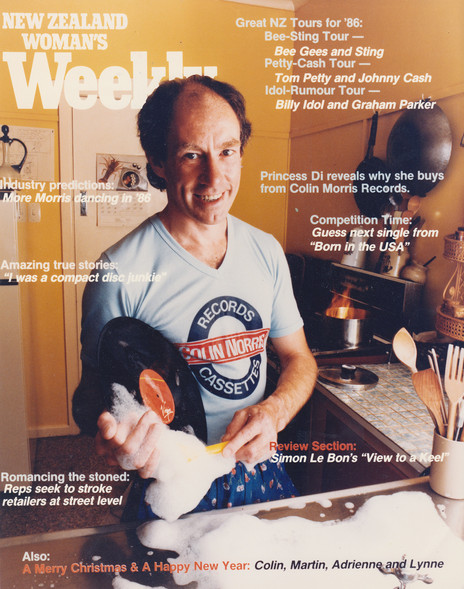
"The thrill that'll gitcha when you get your picture / On the cover of the Woman's Weekly." Christmas, 1985. Industry predictions for the new year: more Morris dancing.
Photo credit:
Colin Morris collection
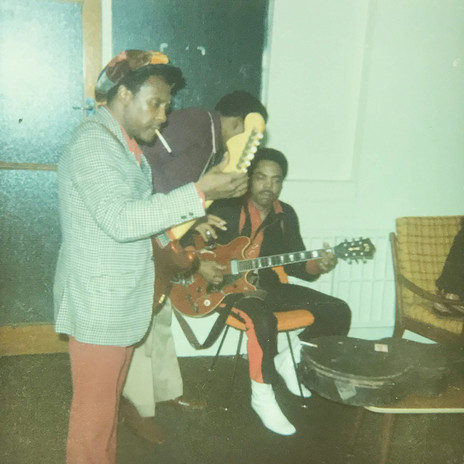
A photo by Colin Morris of Muddy Waters' band tuning up in Wellington, 1973. At left, guitarist Pee Wee Madison (who played an upside-down Fender Mustang); sitting, guitarist Sammy Lawhorn.
Photo credit:
Colin Morris collection
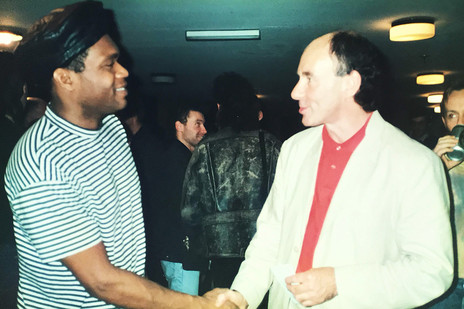
Strong persuader: Robert Cray meets Colin Morris.
Photo credit:
Colin Morris collection
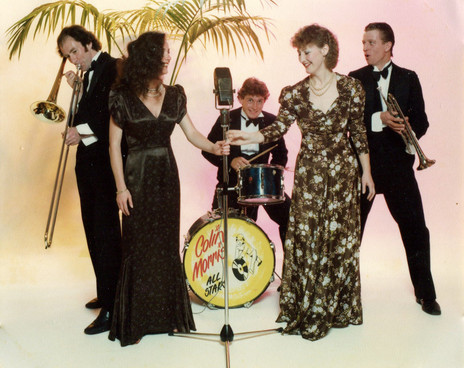
The Colin Morris All Stars. From left: Colin Morris, Debbie Brown, Michael Cross, Vivienne Brown, and Kevin Kane.
Photo credit:
Colin Morris collection
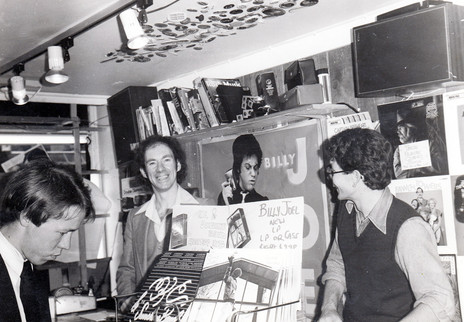
Early 1980: making Colin Morris grin are his colleague Michael Cross, right, and new releases by Billy Joel and KC and the Sunshine Band.
Photo credit:
Colin Morris collection
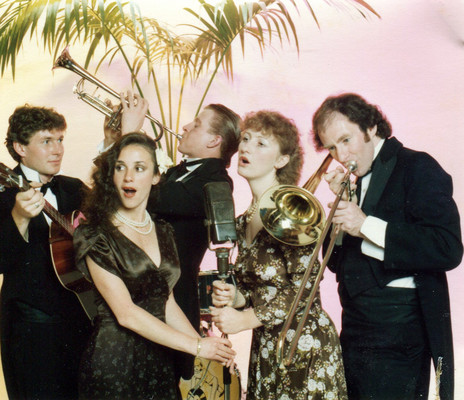
An art deco Christmas c. 1981 for the Colin Morris and Rainbow Records stores. From left, Michael Cross, Debbie Brown, Kevin Kane, Vivienne Brown, Colin Morris.
Photo credit:
Kevin Kane collection
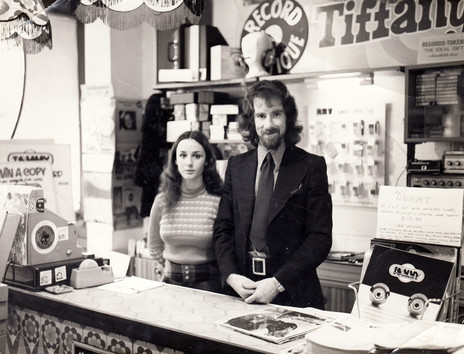
Tiffany's Record Boutique, Lower Hutt, c. 1973-74. Colin Morris with long-serving colleague Debbie Brown, and a special $13.95 offer on 'Tommy' performed by The Who with the London Symphony Orchestra.
Photo credit:
Colin Morris collection
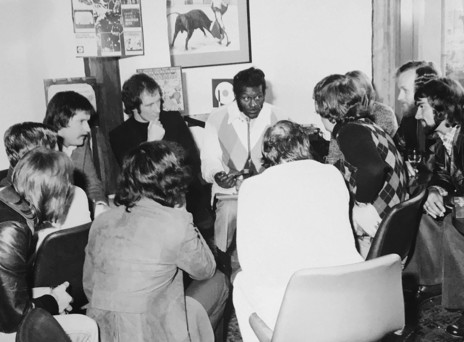
Chuck Berry talking over lunch with Wellington media and music industry, c. 1973; sitting beside him is retailer Colin Morris.
Photo credit:
Colin Morris collection
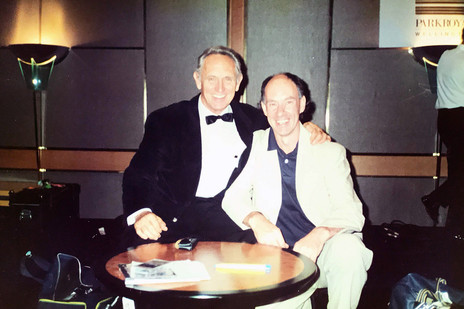
Colin Morris with Australian jazz musician Don Burrows.
Photo credit:
Colin Morris collection
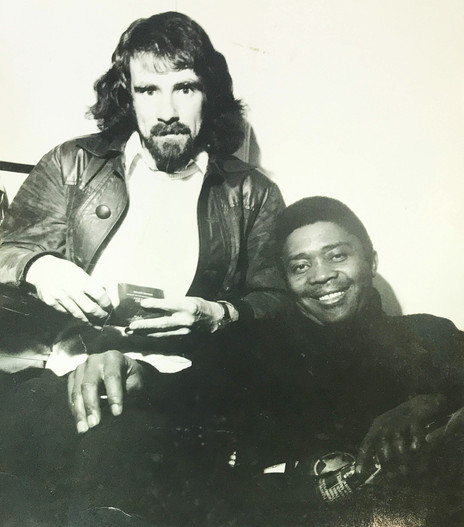
Colin Morris with Muddy Waters' harp player Mojo Buford, Wellington, 1973. Photo probably taken by Sal Criscillo.
Photo credit:
Colin Morris collection
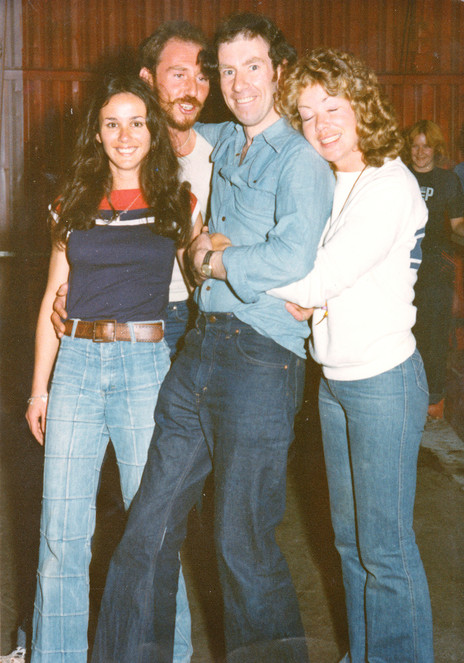
You can't roller skate in a buffalo herd: Colin Morris, in denim shirt, and his brother Eric at the store's Christmas party, c. 1978, sandwiched between, at left, Debbie Brown and Victoria O'Rourke.
Photo credit:
Colin Morris collection
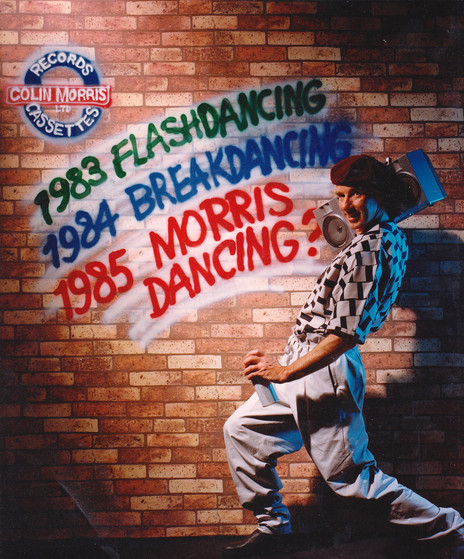
Colin Morris dancing: 1985's new craze.
Photo credit:
Colin Morris collection
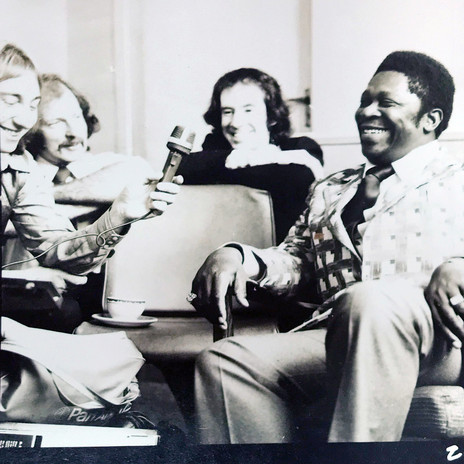
BB King holds court, Wellington, c. 1974. Conducting the interview, far left, is Midge Marsden; in the middle is fellow blues afficionado Colin Morris.
Photo credit:
Colin Morris collection
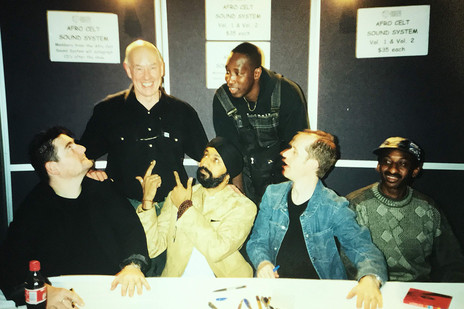
Colin Morris, back left, with members of the Afro Celt Sound System, Wellington, c. 2000.
Photo credit:
Colin Morris collection
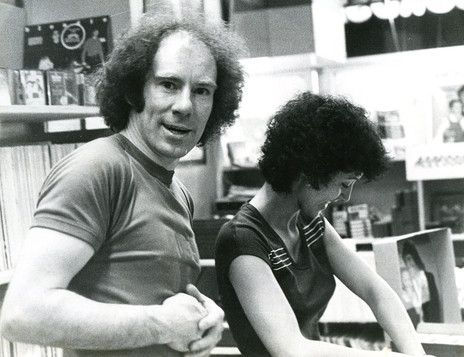
Colin Morris with colleague Ruth Wall at Rainbow Records, c. 1979; Blondie's Plastic Letters on display.
Photo credit:
Colin Morris collection
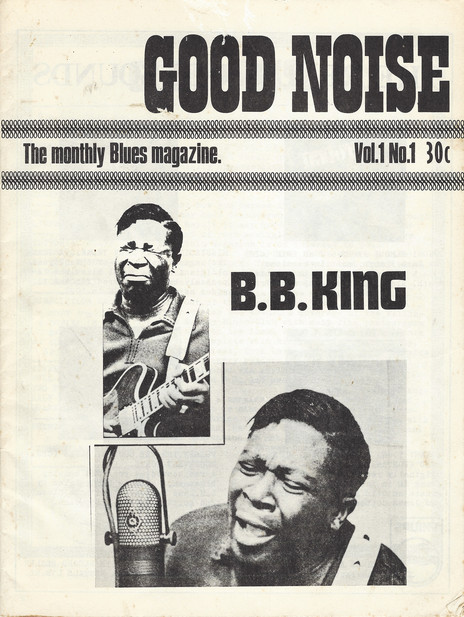
Good Noise - the first of five issues of the blues magazine edited by Colin Morris appeared in May 1968. It covered New Zealand and overseas blues musicians.
Photo credit:
Nick Bollinger collection
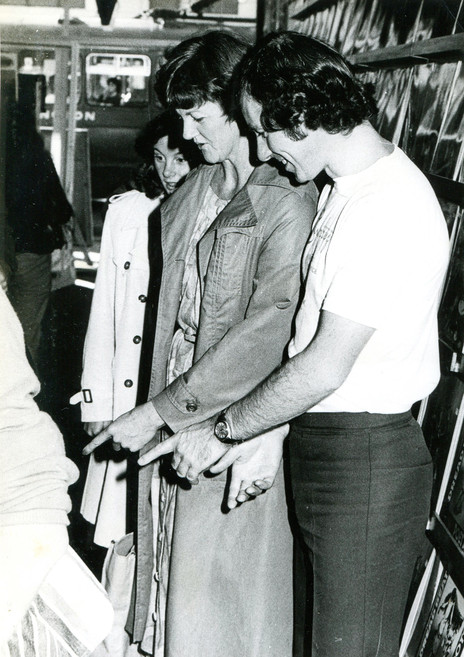
Colin Morris recommends a Supertramp t-shirt to a visitor from Hawke's Bay at the 'Breakfast in America' promotion with Radio Windy, 1979.
Photo credit:
Colin Morris collection
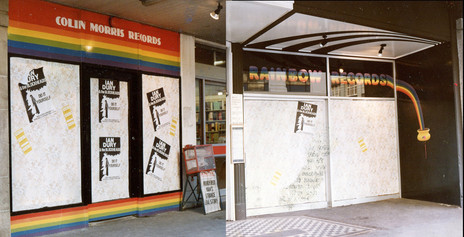
In around 1980 Colin Morris's temporary store on Lambton Quay, Rainbow Records (right), morphed into a store with a more familiar name until the Quay Point arcade opened. DIY fit-out courtesy Ian Dury.
Photo credit:
Colin Morris collection
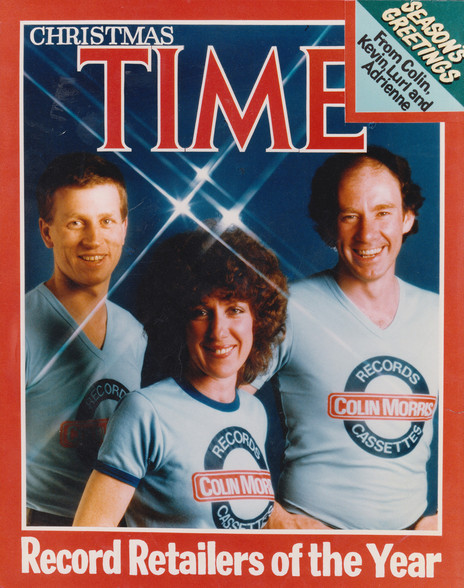
Colin Morris trio on the cover of TIME; Ruth Wall centre, Kevin Kane at left.
Photo credit:
Kevin Kane collection
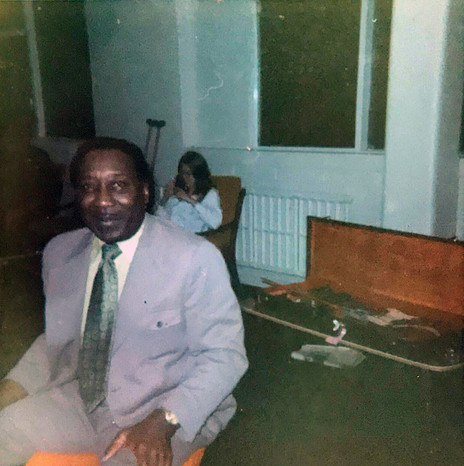
Backstage pass: Colin Morris's photo of Muddy Waters, preparing for his Wellington concert, 1973.
Photo credit:
Colin Morris
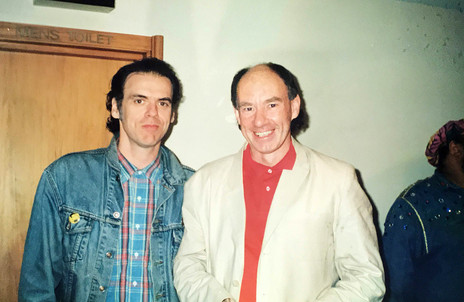
Stolen Moments: John Hiatt with Colin Morris, 1991.
Photo credit:
Colin Morris collection
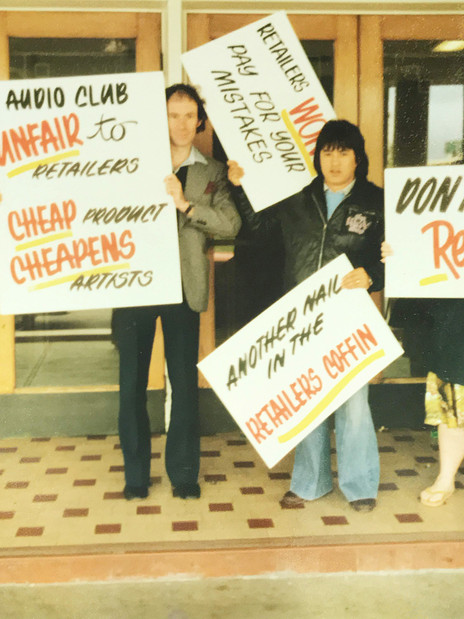
Colin Morris, left, protesting the sale of a massive quantity of albums at bargain-basement prices by the Audio Club, Lower Hutt Town Hall, 1981.
Photo credit:
Colin Morris collection
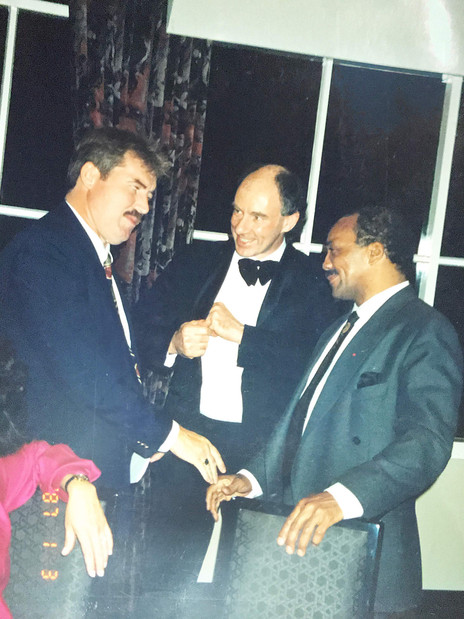
Colin Morris introduces Quincy Jones to Phil Gifford, at an Auckland function organised by WEA's Tim Murdoch, 1990.
Photo credit:
Colin Morris collection